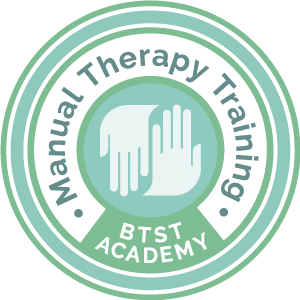So what’s the difference between a sports massage therapist, Physio, Osteopath and Chiropractor ![]()
If I have a pound for everyone that has asked me this question. So briefly here it is……
Before going into the differences what you always need to remember is there’s always good and bad practitioners in every field and if you have a bad experience it doesn’t mean that, that profession is bad! It’s about finding a practitioner that you work well with, feel comfortable with and trust. So when ever you’re looking for somewhere always go on recommendations and look at their patient feedback.
So the main difference, of course, is in the Education and the profession’s school of thought.
- Osteopaths 4yrs Full time or 5yrs Part Time.
- Chiropractors 4yrs or 5 yrs Full Time
- Physiotherapy 3yrs Full Time
- Sports Massage – anything from online courses – 10day intensive courses – 2-3years depending upon the course
Osteopaths believe the “Rule of the artery is supreme” so will look to ensure the body is in the best alignment, working on Joints, Muscles, fascia etc to allow optimal blood / fluid exchange to allow the body to have the best chance to heal. Using soft tissue massage, muscle energy techniques, articulation and Spinal manipulations.
Typical appointment time is 30-45min.
Chiropractic originally came from Osteopathy as there founder of Chiropractic was taught by the founder of Osteopathy. They believe the role of the nerve is supreme. Ensuring optimal nerve supply though alignment of joints will allow the body to have the best chance to heal. Using Spinal Manipulation mainly with small amount of Soft tissue work if required.
Typical appointment time 15-30min.
Physiotherapists help people affected by injury, illness or disability through movement and exercise, manual therapy, education and advice.
Typical appointment time 30-45min.
All three above have extensive education into a deep understanding of the body as well as disease and dysfunction so medical issues can be investigated and picked up. Don’t get me wrong their not GPs however their education covers signs and symptoms for a lot of medical complaints which allows the practitioner to pick up on potential red flags and send for investigation when needed or to feel confident the patient is ok for the chosen treatment. This is the difference between a therapist treating a patient with shoulder pain as muscular-skeletal dysfunction or picking up on a potential systemic dysfunction such as a Liver, heart, spleen dysfunction etc.
Sports massage therapists vary massively! This is the hardest one.
A level 3 sports massage therapist can gain a qualification via an online academy (not sure I agree with this way) or go on a classroom based course which varies in length, anything from 3days to 1yr. There are also degrees in Sports therapy which obviously goes into a lot more depth with regards sports injuries I believe. These courses are typically x2-3 years long.
Once qualified in any profession, all therapists/practitioners can attend CPD (continued professional development) courses in different areas such as Acupuncture, cupping, tapping, spinal manipulation, etc
These courses tend to be short courses over 1-4days.
The danger is you could get a L3 Sport Massage therapist that has just qualified after a 3week course attend a spinal manipulation course and therefore appear to be doing the same as an Osteopath or Chiropractor.
Yes they are working on a painful area with similar or even the same methods but it’s the knowledge, education and experience that sets them apart.
If you see a sports massage therapist as a GP. Osteopaths, Chiropractors and Physiotherapists would be the specialists.
Techniques are just techniques, Knowledge is Power
I hope this sheds some light on the difference.
I write this as a final Year Osteopathic student (Yr5) a qualified Sports Massage Therapist and a Sport Massage academy Owner. I have some great friends who are amazing chiropractors and physiotherapists and love working with them whenever I get chance.
Remember the saying “Horses for Courses” a good practitioner will always refer a patient on if they feel they cannot help!
Like GPs and consultants, therapists will have their own areas of expertise.
Written by; Becky Tyler 22.1.19
